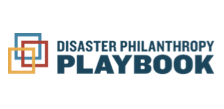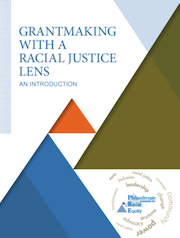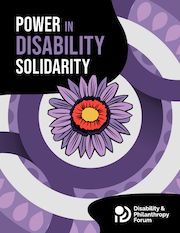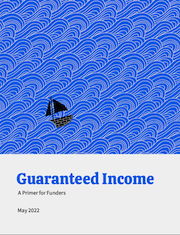Site Search
- resource provided by the Forum Network Knowledgebase.
Search Tip: Search with " " to find exact matches.

Impact100 South Jersey announced that it will award $200,000 in grants to local nonprofits as a result of its fall 2020 collective giving membership drive. Members gathered virtually on Wednesday, Jan 6th for the Big Reveal and celebration. The event was held to share the number of members who have joined and the total raised for grantmaking in 2021. This brings the total funds raised collectively by Impact100 South Jersey members to over $624,000 since 2017.
“With such a tremendous increase in need in our region, it’s been very rewarding to see how our generous members have responded, in a year that has been very challenging for many,” said Membership Co-Chair Angela Venti. “On behalf of the Impact100 Leadership Council, I’d like to express our deep appreciation for the way our new and existing members embraced coming together virtually in lieu of in person events, which we miss so much. We look forward to the time soon when we can bring our members together in person again to strengthen the bonds within our collective women’s giving community.”
We are witnessing an unprecedented transfer of wealth from one generation to the next. Historically, people lived their entire lives close to their birthplace and as wealth passed from one generation to the next, most stayed in the same community. This is no longer true, and once the wealth leaves our communities, it may never return. The Transfer of Wealth study provides a research-based estimate of your region’s assets – homes, businesses, investments – that will transfer between generations within the next 10 and 40/50 years. This wealth when combined with active donor or legislative engagement, makes available charitable giving and enhances philanthropic investing opportunities to improve the quality of life for our communities into the future. Join Ben Winchester, a Rural Sociologist with the University of Minnesota Extension to learn more about trends in transfer of wealth research across the country.
COST: Free and open to all funders.
This program is made possible by support from the following Philanthropy Support Organizations: Council of New Jersey Grantmakers, Florida Philanthropic Network, Grantmakers of Western Pennsylvania, Maryland Philanthropy Network, North Carolina Network of Grantmakers, NY Funders Alliance, Philanthropy Network of Greater Philadelphia, Philanthropy West Virginia, Wisconsin Philanthropy Network.
We invite you to join our next virtual meeting of the NJ Corporate Philanthropy Network where we will learn how non-profits are responding to the changing Federal landscape from the perspective of four different stakeholders and how they’re dealing with these challenges and the impact this climate is having on future planning. Our speakers include: Linda Czipo, New Jersey Center for Nonprofits, who will share with us a broad brushstroke of the impact and the Center’s advocacy efforts to respond;. Sandra Toussaint, United Way of Greater Mercer County, who will review the findings of a recent study in the region; Elizabeth McCarthy, Community FoodBank of New Jersey, who will discuss the impact on the already overly stressed issue of food insecurity in the state; and Peter Rosario, La Casa de Don Pedro (in Newark), will share how a large multi-service organization’s constituents have been directly impacted and how La Casa has responded and adapted.
Cost: Free for CNJG Members; $50 for Non Member Grantmakers
This program is only open to staff and trustees from grantmaking organizations.

In the 12 years since the original Grantmaking with a Racial Equity Lens guide was published the country’s political, economic, and cultural landscapes have undergone multiple, dramatic changes. Public engagement and organizing against racism has risen to historic levels and we've seen racial justice concepts take root in such mainstream contexts as Washington Post articles on White privilege and wider use of the phrase “systemic racism.” And funders have worked hard to keep up. In response to these conditions, PRE has produced an updated guide. The daily practice of using a racial equity lens in social change as well as in grantmaking has established a baseline understanding of structural racism and has led to new insights, definitions, and nuances.
On this webinar, we heard from McKinsey on the disproportionate impact of cOVID-19 on communities of color, as well as longer-term implications and solutions. Representatives from McKinsey discussed their report entitled “COVID-19: Investing in Black Lives and Livelihoods,” which is attached at the bottom of this webpage.
Speakers:
JP Julien, Associate Partner, McKinsey & Company, Philadelphia
Aria Florant, Engagement Manager, McKinsey & Company, Washington DC
Duwain Pinder, Associate Partner, McKinsey & Company, NYC
Cost: Free for CNJG Members/ $35 for Non Member Grantmakers
Webinar Video
The Grantmakers Concerned for Immigrants and Refugees (GCIR) present this program coinciding with Women’s History Month. Bringing in leaders who work at the intersections of these identities, this webinar will provide an overview of the most pressing challenges faced by low-paid immigrant women as well as the diverse strategies groups are employing to address them. GCIR will focus on economic empowerment, we will explore how on the ways philanthropy can support the immediate needs of these communities while building long-term worker power that transcends migrant status and gender identity.
Registration:
There is no cost for this webinar.
You will need to log in or create an account on GCIR's website to register for this program.
Please register for this program by 5pm PT on Wednesday, March 26th.
"The most populous city in New Jersey has launched a pilot program to give guaranteed income to some residents, as the pandemic has exacerbated the racial wealth gap and exposed the economic vulnerabilities millions of Americans face.
Experts say success in Newark, New Jersey, a neighbor of New York City, could set a precedent for other communities around the country to follow suit as the nation seeks to equitably recover from the economic devastation wrought by COVID-19.
“We must emerge from the COVID-19 pandemic with new purpose, new vision and new ideas to transform our community and truly improve the quality of life of our residents,” Newark Mayor Ras Baraka, a Democrat, said in a statement earlier this week. “Here, we have an opportunity to directly empower and strengthen hundreds of lives immediately, while also demonstrating how to do so to the entire nation.”
The Newark Movement for Economic Equity, launched by Baraka on Monday, is a two-year research study that will give unconditional cash payments to economically vulnerable residents. The pilot program is starting with just 30 residents, but is set to expand to 400 residents in the fall. To qualify, participants must be Newark residents who are at least 18 and have income levels at or below 200% of the federal poverty threshold.
To start, participants will receive $6,000 per year — with half receiving payments on a bi-weekly basis and half receiving payments twice yearly.
Some $2.2 million to date in private funds from local philanthropic groups and beyond have been raised to support the pilot program, and a statement from the mayor’s office said they are continuing to seek donors for the initiative.
If it is successful, the group has said on its website it anticipates it will be funded through state or federal money."
Related article: Free Money In Newark: City Experiments With 'Guaranteed Income'
Related article: Some Newarkers will get $500 a month - no strings attached - in pilot income program

Five stories showcase disability solidarity in efforts from Black liberation, participatory grantmaking, art funding, community foundations, and much more. Collectively, each story demonstrates that when we unite as a community in solidarity, we can effectively dismantle ableism and advance all social justice movements.

This primer was developed to educate foundations, individual donors, and other funders about the ways in which guaranteed income and related cash-based policies not only strengthen low and moderate income communities and communities of color, but also build a healthy and more resilient economy for us all.
How has place-based family philanthropy evolved over time? Rather than look first to comparing the contrasting decisions—why a place or issue basis for giving—this study is designed to examine how family foundations and funds committed to place are sustaining (or not sustaining) that commitment over generations.
A combination of curated, synthesized, and original content, this library of resources is intended to help foundations and investors at different stages of practice begin to explore the many ways they can grow and deepen their commitments to racial equity and impact investing.
While donor collaboration is not a new concept, the new economic reality has more and more families, foundations and companies looking towards collaboration as a tool to increase their impact on the issues they care about. This primer was created to help donors understand and evaluate if some form of collaboration might be right for them.
